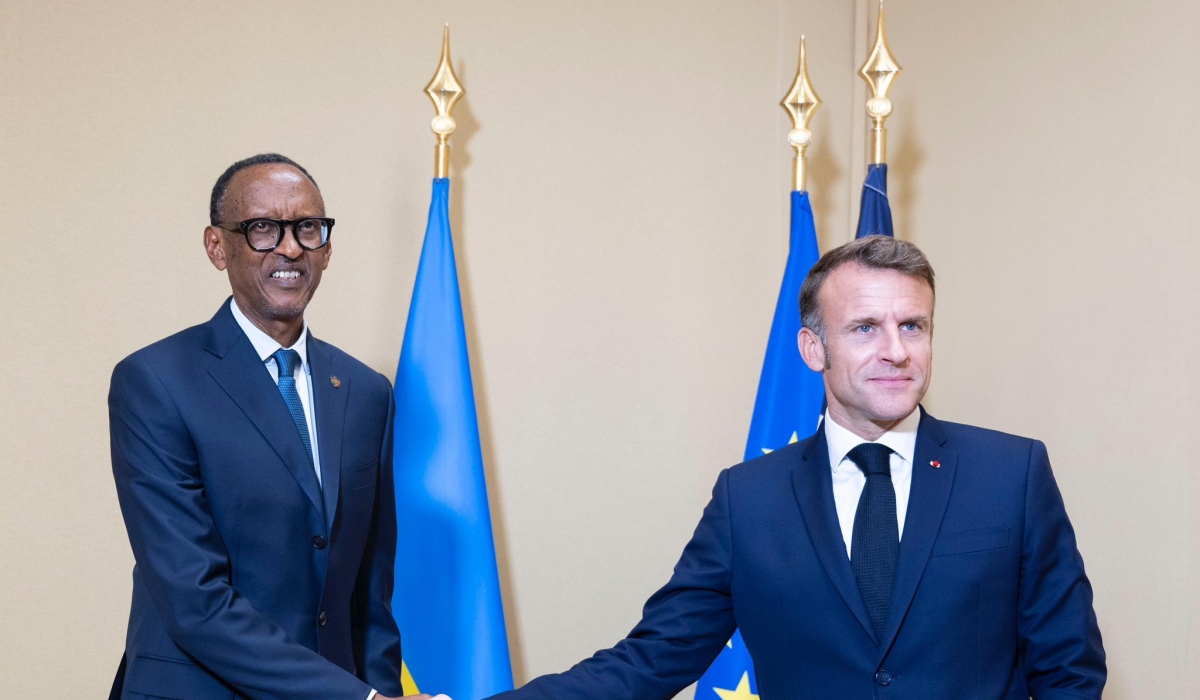On the sidelines of the Francophonie Summit, Rwandan President Paul Kagame met with French President Emmanuel Macron on Saturday, October 5, to discuss issues of mutual interest, including bilateral cooperation in key sectors.
The two leaders emphasized the importance of addressing the root causes of insecurity in the region through concrete actions and support for regional initiatives.
Kagame arrived in France on October 3. In a March statement, Macron expressed support for a political resolution to the tensions between Rwanda and the Democratic Republic of the Congo (DRC).
Macron had a telephone conversation with Angolan President João Lourenço, the African Union mediator between the two countries, on March 20. The Luanda process, named after Angola’s capital, was initiated by the International Conference on the Great Lakes Region (ICGLR) in mid-2022 to address diplomatic tensions stemming from the conflict between the DRC government and M23 rebels in North Kivu province.
The Elysee Palace stated that Macron welcomed Lourenço’s commitment to the situation in Eastern Congo and reiterated support for regional mediation efforts aimed at achieving a negotiated solution.
Following months of hostile rhetoric from Congolese leaders and increasing calls for negotiations, regional leaders revitalized the Luanda process during a meeting in Ethiopia on February 16. Rwanda has accused the Congolese armed forces (FARDC) of integrating the FDLR, a UN-sanctioned militia linked to the 1994 Genocide against the Tutsi in Rwanda.
The FDLR is part of a coalition led by the Congolese government that includes Burundian forces and troops from the Southern African Development Community (SADC), which are combating the M23 rebels. This group poses a threat to Rwanda and has been accused of inciting hate and violence against Congolese Tutsi communities.
In addition to the FDLR, the underlying causes of violence in eastern DRC include decades of persecution and marginalization of Kinyarwanda-speaking communities.
The FDLR’s actions have fueled violence and hate speech against Congolese Tutsi, resulting in the displacement of hundreds of thousands. Rwanda currently hosts around 100,000 Congolese refugees, some of whom have lived in camps for nearly 30 years. The FDLR was established in May 2000 with support from Congolese political and military leaders, a fact acknowledged by one of its founders, Straton Musoni, who now resides in Rwanda.

